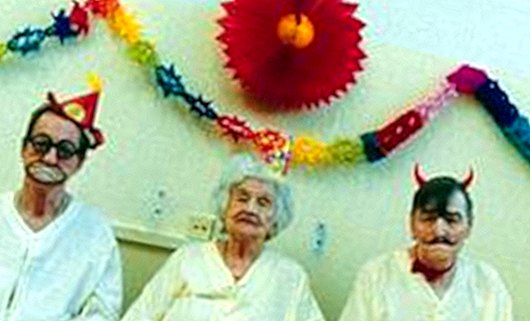Import export

 © Ulrich Seidl
© Ulrich SeidlContent: Olga, a nurse from Ukraine, comes to Vienna to earn money. Paul completes his training as a security man in Vienna, but quickly he is fired again. With his stepfather, he sets off for a job in the Ukraine to work off his debts.
Criticism: IMPORT EXPORT is the second feature film by Austrian director Ulrich Seidl, who won the Grand Prix of the Jury with his first feature film Hundstage (2001) in Venice. Previously, he staged some provocative documentary films, such as TIERISCHE LIEBE (1995), which also did not omit the topic of sodomy. In tableau-like, very quiet pictures, Seidl stages scenes that must always be linked with reality for him. Seidl: "For me, the only difference between a feature film and a documentary film is that there is already a script and actor for each role in a feature film, it's just a small difference, for me it's important, something existentially real whether on stage or filmed. "
That's why Seidl only shot his film at original locations; In the old people's home in Vienna, he had to wait more than half a year for a filming permit. In the end, he had more than 80 hours of footage, and during the cut, he shot some scenes again. Thus a film has been created that captures reality, but under the strict stylistic control of the filmmaker.
IMPORT EXPORT takes us to gray, cold places, both in Austria and in the Ukraine. At the beginning Olga walks through a spacious snow landscape, turned minus 20 degrees, that's what you feel. The film tells about movements in two directions. Olga travels to Vienna and Paul to the Ukraine, both with the intention of improving their lives. The viewer is waiting for the characters to meet, to cross their lives. But at some point it becomes clear that this is not the intention of the filmmaker, and that's wise.
Alternating and interwoven, we follow the paths of Olga and Paul. At the same time, Seidl succeeds in moments of haunting intensity that burn into the memory of the viewer. For example, when Paul's stepfather forces a Ukrainian prostitute to play a dog naked on all fours, and Paul has to watch this. In the nursing home, where Olga finally finds work as a cleaner, there is a whole room full of old women who are about to die. One calls out to her mother with a high-pitched voice, one sings "I've lost my heart in Heidelberg" and stirs tears with her fragile vocal insert, which stands out as a documentary pearl within this feature film. In the credits are several crosses with the actors from the nursing home, death has brought them to themselves. IMPORT EXPORT consistently ends with a nocturnal shot of the women's room. One of them repeats again and again only one word: "death." With that, all has been said.
Although this film is very gloomy, it usually focuses on moments in the life of Olga and Paul, in which they are humiliated. Yet, behind this dark facade, there still seems to be hope for a world where people help each other and are there for each other. Seidl may be a sadist, but deep in his heart he is a disappointed romantic idealist.
Nana A.T. Rebhan / ARTE
The Cannes Film Festival at ARTE

ARTE culture reported every day at 8 pm live from Cannes.
Find out more about the Cannes Film Festival in the large ARTE dossier.










